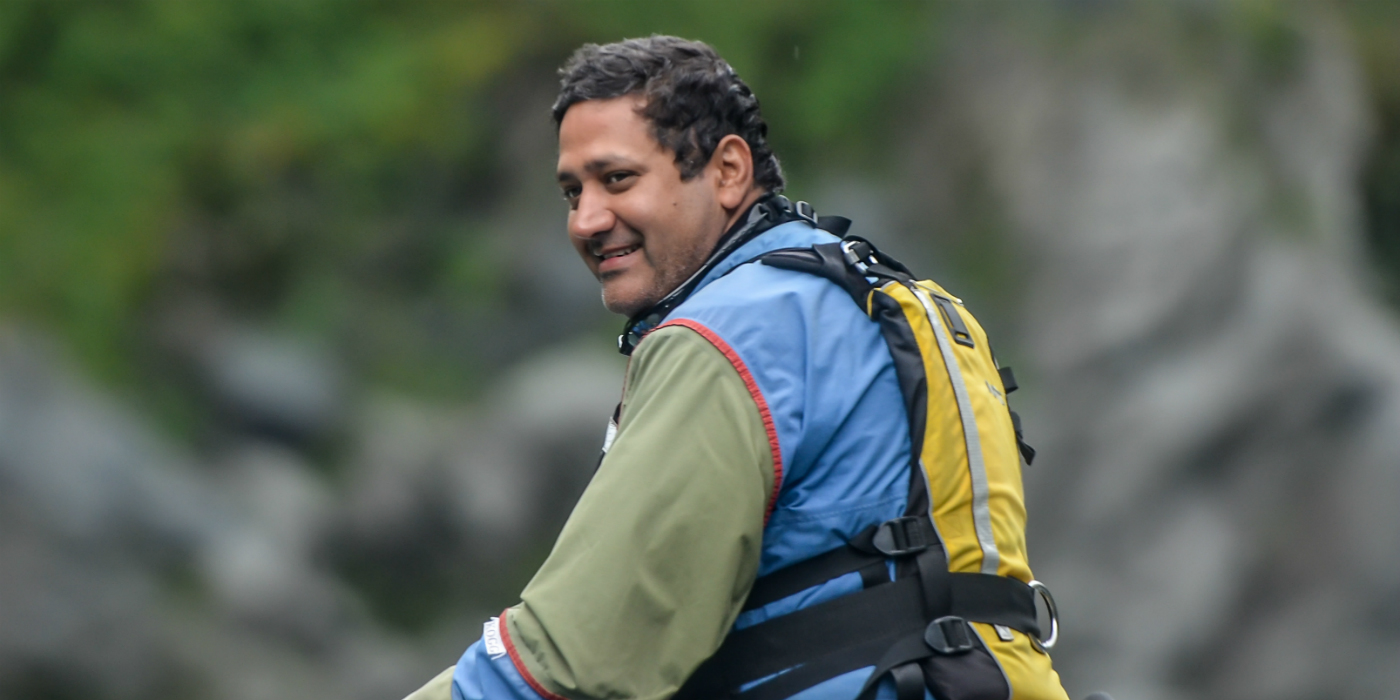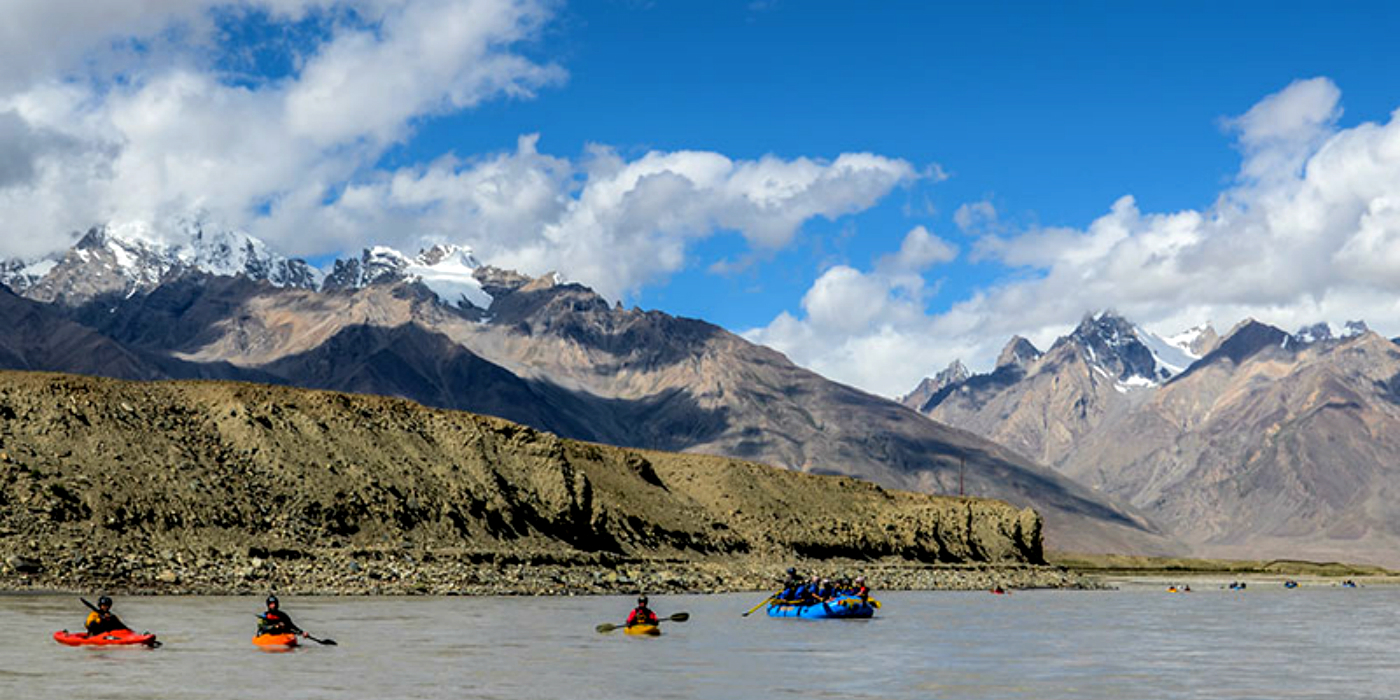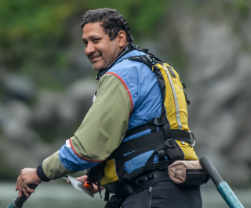
Covid-19 has brought all of tourism, including adventure travel, to its knees and companies need to be prepared to restart from zero.
31 March 2020 Covid-19 struck India truly in the week of March 6-12, 2020. I remember it clearly, as in that one week the rug was literally pulled from under our feet. The entire season from March till June 2020, during which we could do as much as 40% of our revenues, was cancelled, postponed and, in some cases, locked out well before the lockdown!
The first to shut its borders was the kingdom of Bhutan on March 6, and our March expedition was locked out. India followed the next week on March 12 cancelling all visas, then it was the turn of Nepal the next day on March 13. Everest was shut down as well.
Well before work from home directives came, we closed our office operations in Delhi on March 11—safety of our team is always top priority.
The playground of adventure travel in Asia was closed to the world in a single week. The rest of the world that makes up the remainder of the outdoor industry followed suit, shutting its doors to stop the spread. Cancellations, postponements, rescheduling travel, communications followed that hectic week, which was the perfect distraction from the storm that was building up as a consequence to the events of the prior week. Airlines, hotels, small businesses were starting to feel the pain.
Unchartered waters
It was shock and awe; we are a company that began operations in 1995, heralding the start of the organised adventure travel sector in Africa-Australasia. Over time, we grew to a 90-strong company that managed its own sales, promotions, logistics, operations, equipment—all self-owned and operated, with the sole aim to eliminate the variables brought upon by outsourcing. We witnessed the growth of the domestic market through the tech and aviation revolutions in India, which were the catalysts in making adventure travel grow from a cottage industry to one that started to reach into remote valleys across India. We saw the ups and downs and continued to grow. Opportunities were provided to people from the mountains and direct benefit to the regions we operated in was the principle and the tools we managed the company with.
But, we have seen nothing like Covid-19. We survived the US and UK recessions, the Ebola and SARS epidemics, the aftermath of the 9/11 attacks, the Ladakh floods, the Uttarakhand deluge, a cloudburst on our lodge. We took it all on the chin, rolled with the punches and moved on. This one is different. The consequences of the shut down of international borders, and the lock-out is unprecedented. The looming crisis is clearly something our country will struggle to cope with, considering 60% of India's GDP is contributed by the service sector.

A Zanskar river rafting trip (above) by Aquaterra Adventures in normal times
Quick and pragmatic decision making
We met as a team within the week, and discussed the ramifications of this global event. There was nothing we could control, government directives were now the basis on which our strategy was based, entirely reactive to the unfolding drama. Pragmatic decisions were made. First, a communication to all our partners and guests was sent to allay fears. Operations were shut down—speed was the key to save cost overruns. Our camps were shut, the lodge waited for its last guests to leave and closed overnight, with rosters in place for a skeletal team to man, protect and maintain. Everyone was sent back to towns, villages and cities before the lock down happened. The speed of decision was critical to ensure safety of our team, which was first priority.
Our team meeting took cognisance of the fall out next, which was overwhelming. With our whole season wiped out, we need resilience, understanding of the situation and patience. We spoke freely and knew this would take months. We discussed what would help subsist through the coming months, what would help the mother-ship survive, as without that, none of us would return to jobs. Reverse engineering operational funds was the need of the hour: leave without pay to spend time at home with families, take care of their safety and lying low till we could all return, were options. The situation is so dynamic, no one seems to have the answers. The industry is reeling, without exception, and we hope the human economic tragedy does not overwhelm the one playing in the medical realm.
Blind turns ahead
We are all home and safe, the business has come to a grinding halt. We do not know what to expect, payroll protection is what our nation needs to look into urgently. No private enterprise can sustain an event like this without support. We feel the pain of thousands of small homestays, guest houses, ponymen, mulemen, porters, agents, remote area service providers, transporters, drivers, freelance camp teams, guides, trip leaders, vendors—we know everyone’s suffering from the fall out of the mammoth tragedy. And to compound this face of human tragedy, is that no one knows when things might be close to normal.
The virus has taught us many things—plan reserve contingency funds diligently, live within ones means, maintain frugal lifestyles, build home-work balance and be debt-free. This will happen again, and the opportunity it has provided us is to rethink the business. At a company level, this is an opportunity to go back to the drawing board, rationalise everything, from vendor management and team focus on multi tasking to team costs and the supreme relation of company performance to emoluments.
As lakhs migrate back to villages, the start from zero will take time, for traffic to build demand. Like we have before, we will rise again, albeit slowly, but steadily, to gain the vast ground we have lost, and continue to lose with each passing day.
As Lenin said, there are decades where nothing happens and there are weeks where decades happen!







